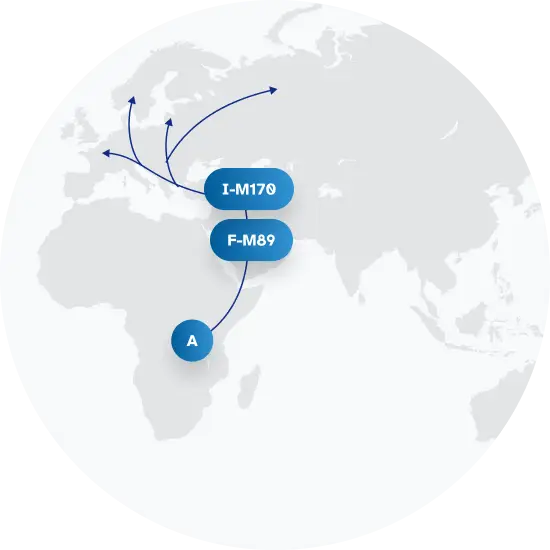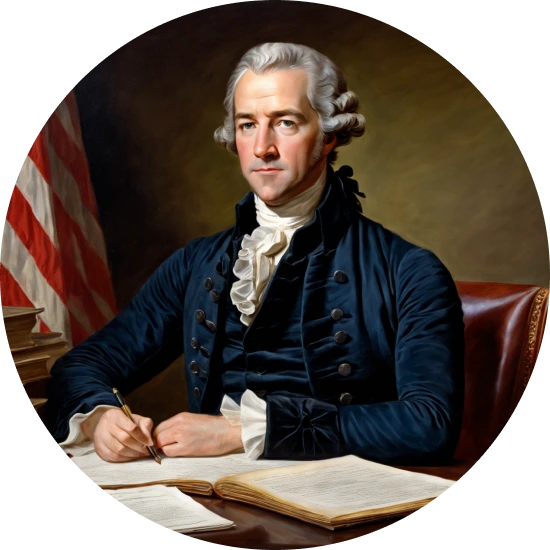Explore the Family Name Blake
How common is the last name Blake in the United States?
The popularity of the surname 'Blake' has seen a slight shift between 2000 and 2010, as per the Decennial U.S. Census data. In 2000, 'Blake' ranked as the 425th most popular surname in the United States, dropping slightly to the 447th position by 2010. This represents a decrease of approximately 5.18%. However, the actual count of individuals with this surname increased from 69,279 in 2000 to 73,797 in 2010, marking a growth rate of about 6.52%. The proportion per 100,000 people declined by around 2.57% during the same period.
| 2000 | 2010 | Change | |
|---|---|---|---|
| Rank | #425 | #447 | -5.18% |
| Count | 69,279 | 73,797 | 6.52% |
| Proportion per 100k | 25.68 | 25.02 | -2.57% |
Race and Ethnicity of people with the last name Blake
As for the ethnic identity associated with the surname 'Blake', the Decennial U.S. Census data shows a range of ethnical backgrounds. In 2000, the majority of Blakes identified as White (74.04%), followed by Black (21.11%). By 2010, although Whites still made up the majority, there was a slight decrease to 71.21%. The percentage of Blacks increased to 22.58% during this period. Other ethnic identities associated with the name include Hispanic, Asian/Pacific Islander, those identifying with two or more races, and American Indian and Alaskan Native. Interestingly, the number of Blakes identifying as Hispanic saw the greatest increase, rising by 44.09%, while the Asian/Pacific Islander category also saw a significant growth of 33.33%. Those identifying with two or more races rose by 20.22%, and American Indian and Alaskan Natives increased by 7.69%.
| 2000 | 2010 | Change | |
|---|---|---|---|
| White | 74.04% | 71.21% | -3.82% |
| Black | 21.11% | 22.58% | 6.96% |
| Hispanic | 1.86% | 2.68% | 44.09% |
| Two or More Races | 1.78% | 2.14% | 20.22% |
| American Indian and Alaskan Native | 0.78% | 0.84% | 7.69% |
| Asian/Pacific Islander | 0.42% | 0.56% | 33.33% |
Blake ancestry composition
23andMe computes an ancestry breakdown for each customer. People may have ancestry from just one population or they may have ancestry from several populations. The most commonly-observed ancestry found in people with the surname Blake is British & Irish, which comprises 50.1% of all ancestry found in people with the surname. The next two most common ancestries are French & German (21.9%) and Eastern European (4.6%). Additional ancestries include Scandinavian, Nigerian, Ashkenazi Jewish, Italian, and Ghanaian, Liberian & Sierra Leonean.
Ready to learn more about your ancestry? Get the most comprehensive ancestry breakdown on the market by taking our DNA test. Shop 23andMe
| ANCESTRY BREAKDOWN | COMPOSITION |
|---|---|
| British & Irish | 50.1% |
| French & German | 21.9% |
| Eastern European | 4.6% |
| Other | 23.4% |

Possible origins of the surname Blake
Your DNA provides clues about where your recent ancestors may have lived. Having many distant relatives in the same location suggests that you may all share common ancestry there. Locations with many distant relatives can also be places where people have migrated recently, such as large cities. If a large number of individuals who share your surname have distant relatives in a specific area, it could indicate a connection between your surname and that location, stemming from either recent ancestral ties or migration.
Based on 23andMe data, people with last name Blake have recent ancestry locations in the United Kingdom of Great Britain and Northern Ireland and Ireland.
| RECENT ANCESTRY Location | Percentage |
|---|---|
| Greater London, United Kingdom | 82.90% |
| Greater Manchester, United Kingdom | 82.70% |
| Glasgow City, United Kingdom | 82.60% |
| West Midlands, United Kingdom | 82.50% |
| Merseyside, United Kingdom | 82.50% |
What Blake haplogroups can tell you
Haplogroups are genetic population groups that share a common ancestor on either your paternal or maternal line. These paternal and maternal haplogroups shed light on your genetic ancestry and help tell the story of your family.
The top paternal haplogroup of people with the surname Blake is I-Z58, which is predominantly found among people with European ancestry. Haplogroup I-Z58 is descended from haplogroup I-M170. Other common haplogroups include R-CTS241 and I-FGC15106, which are predominantly found among people with European and European ancestry. Other surnames with similar common haplogroups are: White, Thompson, Fox, Smith, Lowe, Brown, Nelson, Baker, Taylor, Harrison.
The most common maternal haplogroups of people with Blake surname are: H1, T2b, H. These most commonly trace back to individuals of European ancestry.
 Paternal Haplogroup Origins I-M170
Paternal Haplogroup Origins I-M170
Your paternal lineage may be linked to Alexander Hamilton
Early in the morning on July 11, 1804, Aaron Burr (then Vice President of the United States) and Alexander Hamilton (founder of the U.S. Treasury) dueled on the New Jersey side of the Hudson River. This marked the culmination of a bitter personal and political rivalry between the two men. Alexander Hamilton died as a result of the duel, but his intellectual legacy survives in the founding documents of the nation he helped build. A piece of his genetic legacy survives as well: in the 21st century, genealogists documented the paternal haplogroups of dozens of Hamilton's living descendants and concluded that the Founding Father's paternal haplogroup was a branch of I-DF29.
Your maternal lineage may be linked to Marie Antoinette
Because it is so dominant in the general European population, haplogroup H also appears quite frequently in the continent's royal houses. Marie Antoinette, an Austrian Hapsburg who married into the French royal family, inherited the haplogroup from her maternal ancestors. So did Prince Philip, Duke of Edinburgh, whose recorded genealogy traces his female line to Bavaria. Scientists also discovered that famed 16th century astronomer Nicolaus Copernicus traced his maternal lineages to haplogroup H.

What do people with the surname Blake have in common?
Spoiler alert: it's complicated. People with the same last name are usually no more genetically similar than a randomly sampled group of people from the same population. That said, people with the same surname are more likely to have similar ancestries than randomly sampled individuals. The reason is the tendency of people with similar cultural or geographical backgrounds to preferentially mate with one another. That's why people who share a surname may be more likely to share traits and tendencies in common than people within the general population. Check out the percentages below to see the prevalences of tastes, habits, and traits of people with your surname compared with prevalences among 23andMe users.
Preferences
Traits
Habits
Wellness
Are health conditions linked to the last name Blake?
The short answer is that, if there is an association between surname and health, it's usually more about your ancestry than your name. Individuals with a given surname are no more genetically similar than the general population but often have similar ancestries. The populations of people associated with those shared ancestries often have sets of genetic variations, also known as alleles, in common. Some of those alleles are associated with a greater likelihood of developing certain diseases.
Disease variant frequency by ancestry
Disease allele frequencies in populations associated with the surname Blake are shown below. Important Note: not everyone with a disease allele will develop these health condition




























